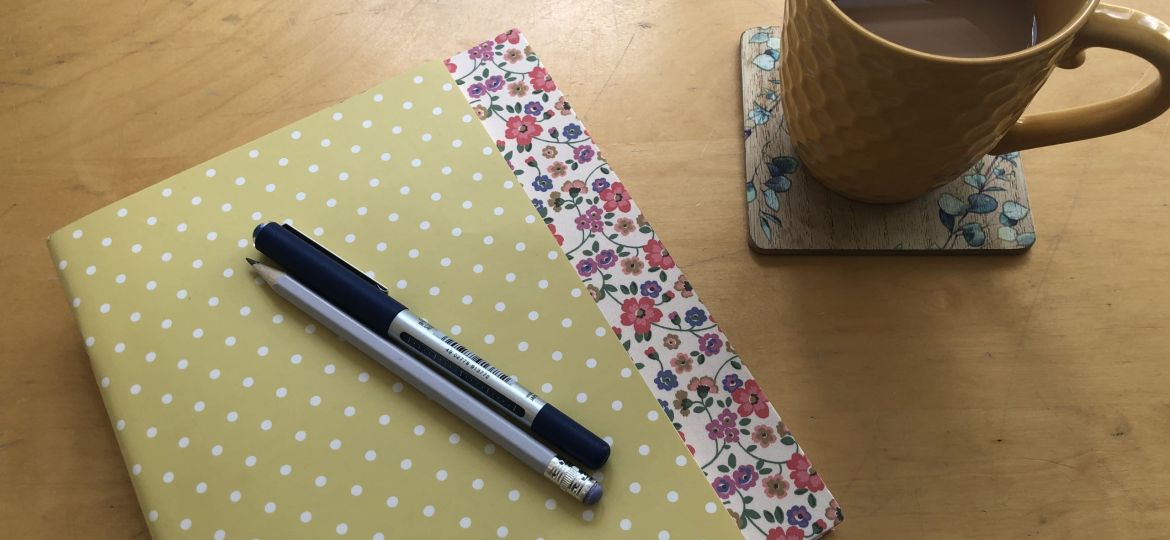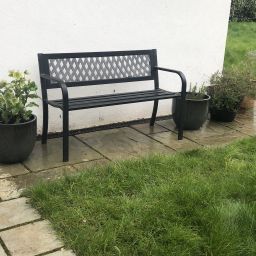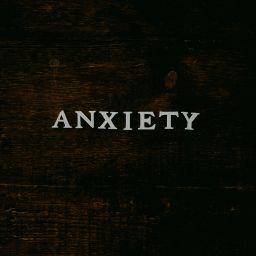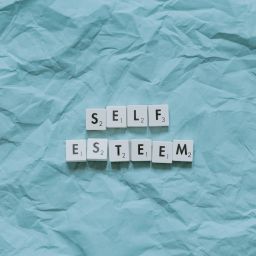
Do you struggle with anxiety? If you do, you are not alone. In any given week in England, 1 in 6 people report experiencing issues such as anxiety and depression. In addition, 8 in 100 people have a specific diagnosis of mixed anxiety and depression, and 6 in 100 of Generalised Anxiety Disorder (GAD). And the true statistics are probably higher than this. You can read more about this here.
A little bit of anxiety might be okay, even appropriate in some situations such as giving you the adrenaline you need to prepare for an important meeting or exam. If it gets too much it can stop you from doing things you need and want to do, and can decrease your quality of life and wellbeing.
There are lots of tools and tricks you can use to help you manage your anxiety, and the most important thing is to find out what works best for you. Research has shown that one thing that is great for reducing anxiety is journal writing.
The benefits of journalling for anxiety
- Journalling can reduce stress. The act of writing your thoughts down on paper can be calming, and creating a ritual of time for yourself with your journal and perhaps a favourite comforting hot drink can be a way of caring for yourself.
- Journalling can break the cycle of rumination and intrusive thoughts. Writing down your worries can help you to set them aside and creates mental space when your mind feels too busy.
- Journalling increases awareness. By writing about what is making you anxious, you may become aware of patterns that are repeating and traps you keep falling into. Writing about positive emotions and gratitude can help you notice the good things in your life more.
How to start your journalling practice
Choose your journal. If you love beautiful stationery, find a notebook or journal that appeals to you and pens that are attractive and comfortable to write with. That way you will be more likely to want to journal. If you prefer to type, you could explore online journals and apps. Experiment and find out what works best for you.
Pick the best time to write. You will be more likely to stick to it if you make it part of your morning or evening routine, or another regular time slot like a lunch break. Think about when you will have enough time to allow it to be a pleasure and not a chore.
Take small steps. Do whatever you need just to get started. This could be free writing, using a journal template, or following prompts like the ones below. It’s okay just to write a little bit. Keeping it short and simple, at least at first, will make it easier to form a habit you can continue.
Be kind to yourself. It doesn’t have to be perfect. You are not writing an essay and no-one’s going to mark it. This is just for you. Don’t worry if you miss a day. Just pick it up again the next day and take it from there.
If you’re looking for ideas, here are some prompts to get you started.
10 journal prompts to help if you are feeling anxious
- What situations usually trigger your anxiety? Think about what helps most in each situation. Who can you ask for support when you are feeling anxious? List the people you could speak to if you need help. What strategies do you have in your toolbox? It’s good to think of some ideas while you are not feeling too stressed, so that you will have something to fall back on in moments when you are feeling too anxious to come up with a plan. Write a list of objects or activities that make you feel safe and calm. Which one could you use right now?
- How are you feeling right now? How would you rate your anxiety (1-10) and what can you do to lower the number? If you are anxious, think about what might be making you feel that way. What do you need in this moment to feel less anxious? For lots of people, asking ourselves what we need doesn’t come naturally and it takes practice. Keep asking yourself what you need every day until it becomes a habit. Anxiety can sometimes tell us there’s something we need that we are not getting.
- Where in your body do you feel anxiety? What would your anxiety say if it could speak? Giving the anxious part of you a chance to put feelings into words can help you to relax and can reduce tension in your body. Is your anxious part trying to help you? What do you think it’s trying to protect you from? It’s really good to learn to listen to this part but we don’t have to let it be in charge. Our anxiety may be caused by things in the past, and we might avoid situations in case they make us feel worse but sometimes taking risks and doing something different can make us feel better. What would you like to do if you could feel less anxious?
- What would you like to say to your anxious part? Try writing a letter to the part of you that feels most anxious. Or you could write a dialogue between your younger self and your adult self. What kind words could you say to reassure your anxious part? Many of us speak to ourselves far more unkindly than we ever would to another person. Try using your journal to practise self-compassion.
- What are you grateful for today? Bringing to mind things that make us feel good is uplifting and enhances wellbeing. Writing a gratitude list can be a great way to reduce anxiety and boost your mood.
- What have you accomplished today and how can you reward yourself? If you write about all the things you have achieved, it will very likely be more than you realise and it might help you if you are feeling overwhelmed and worrying that you haven’t done enough. Celebrating every step forward, however small, helps you to feel more positive and hopeful.
- Are there any worries on your mind? Write them down and see if that makes it easier to let them go. If they are things you are worried you’ll forget to do, having them written down may be useful. If they are unrealistic worries, you might find it helps to tear up what you have written and throw it away so you don’t hold onto them.
- What thoughts do you have when you feel anxious? Does the anxiety cause the thoughts or do the thoughts cause the anxiety? Perhaps it’s a bit of both. Writing them down may help to break the cycle.
- Where do you feel most peaceful? Write about that place and how it makes you feel. What do you love about your peaceful place? What emotions does it bring up when you write about it? How does your body feel when you imagine yourself there?
- Draw a treasure box and write about what you would like to keep in it. You can fill it with physical objects that are precious to you, or less tangible things – love, peace, hope, joy, treasured memories, special people, kind words that have been spoken to you. Remember to come back to it when you need some encouragement.
These are just a few ideas to get you started. Pick the ones that feel right for you and see where they take you. Write little and often if you can, and above all be kind to yourself.
And if you’d like a bit of help with managing your anxiety, contact me by email on hannahflowerscounselling@gmail.com or by phone on 07305 424417 and you can add talking things through in therapy to your toolkit.






